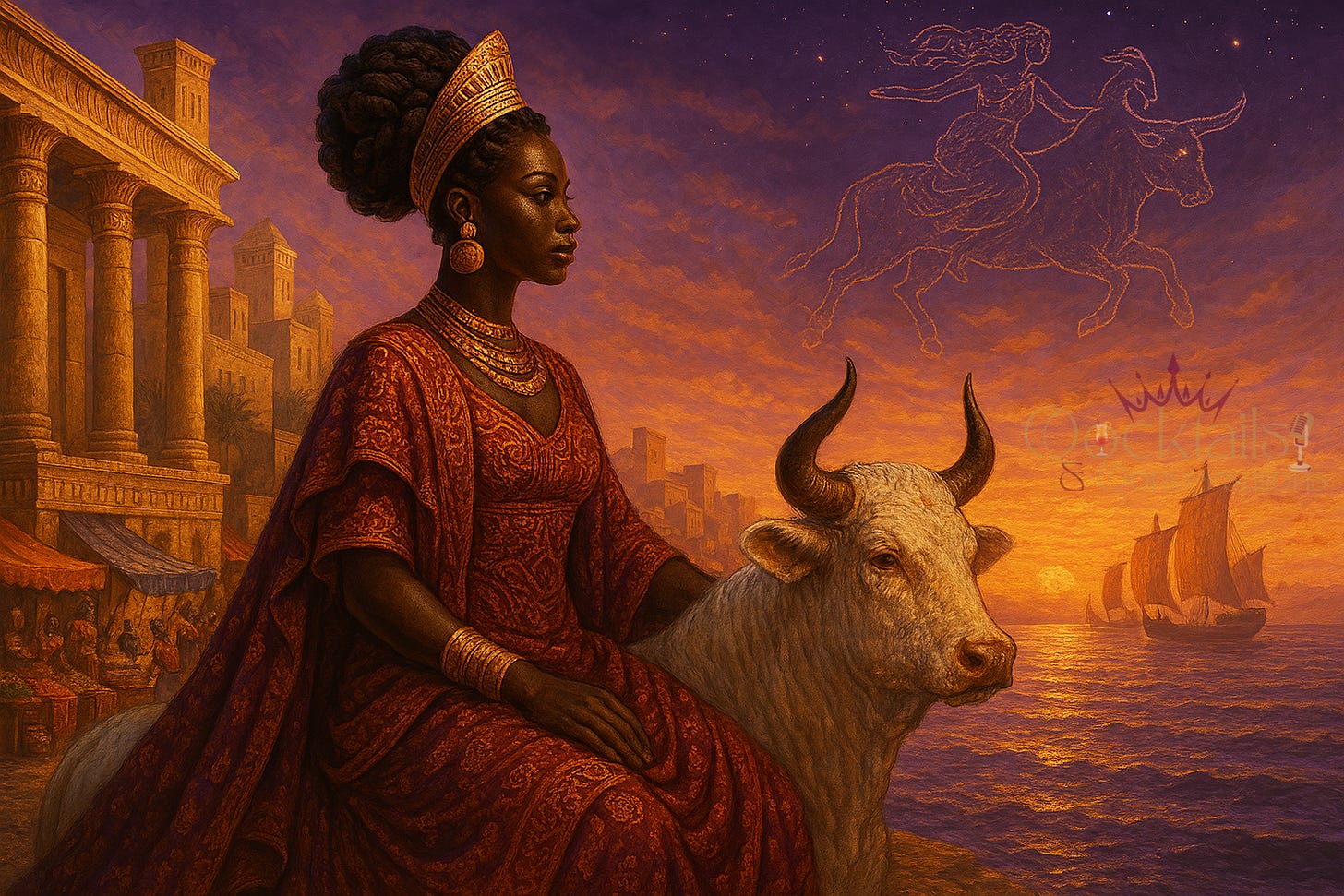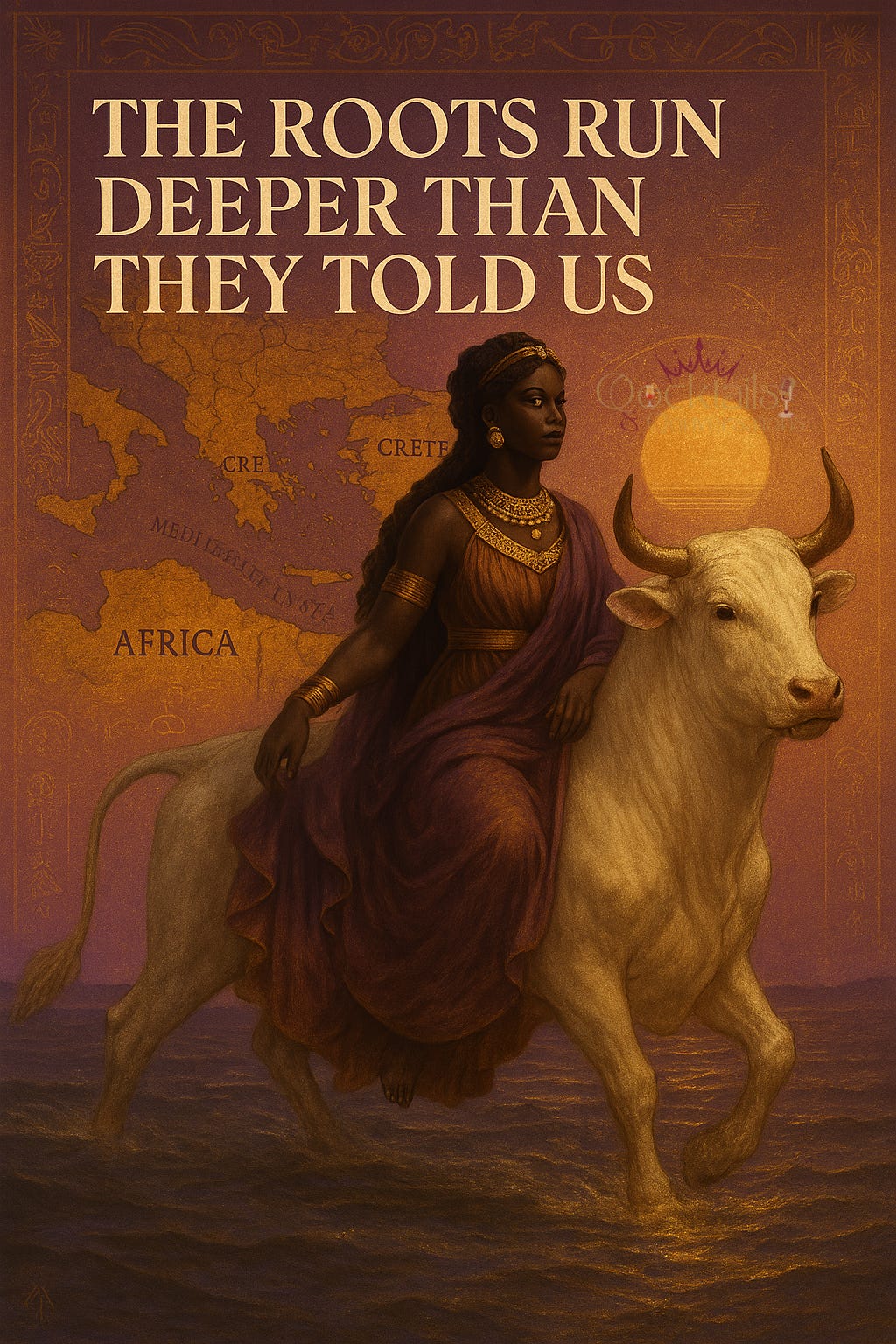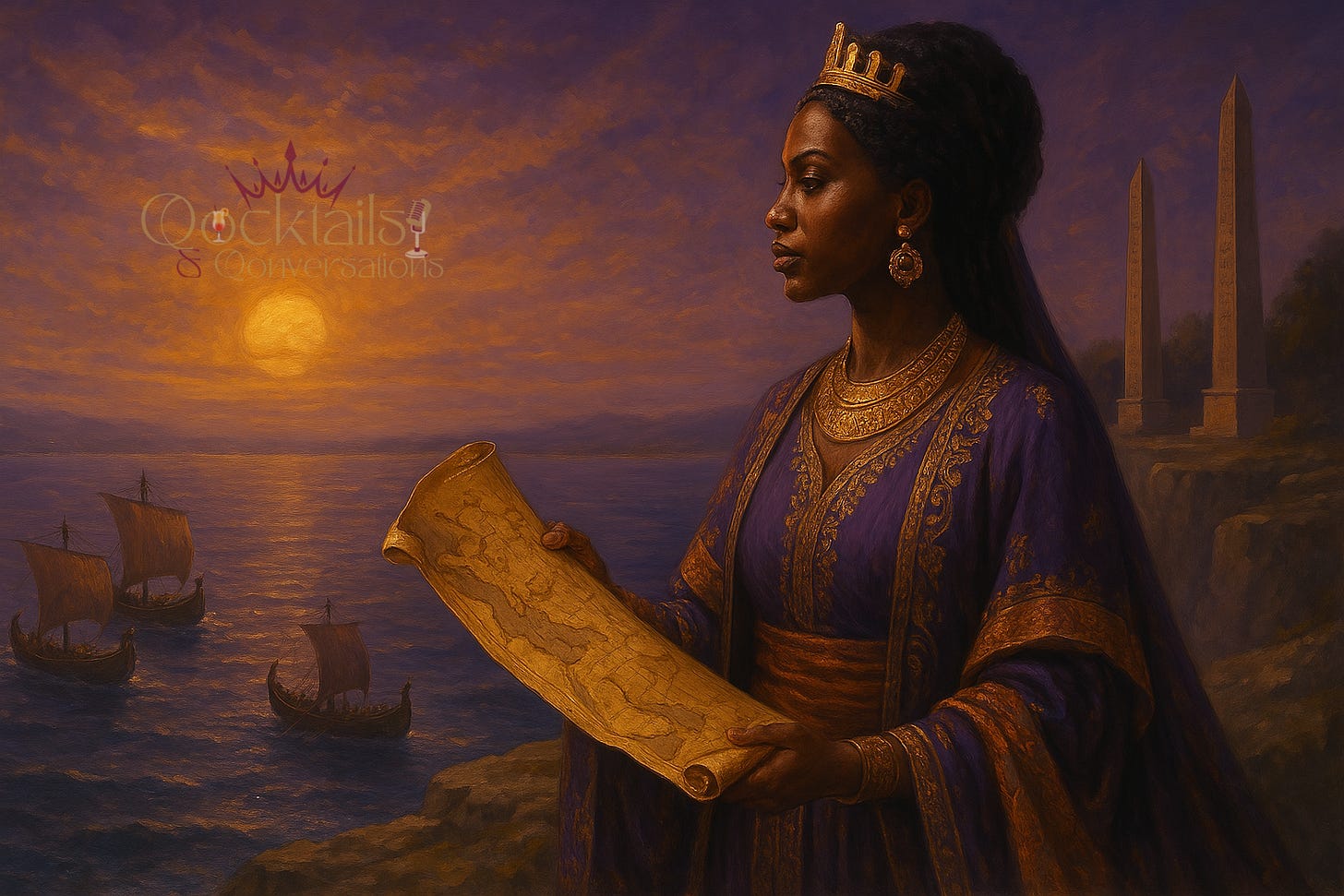Uncorking History: The African Origins of Europa?
Was Europe Named After an African Woman? Let's Sip & Decode the Story
Hey Qrew,
Ever paused over your glass of Bordeaux and wondered… where did the name Europe even come from? Well, sis, pour a little more in your coupe because today’s Qonversation is a juicy one.
The continent we call Europe is named after Europa, a figure from Greek mythology. But here’s where it gets intriguing—Europa wasn’t Greek. She was Phoenician, a people from the region we now know as Lebanon and coastal Syria, who had deep trade and cultural ties with North Africa—especially Carthage and Egypt.
In the myth, Zeus, king of the Greek gods, saw Europa picking flowers by the sea, transformed himself into a gentle bull, and whisked her away to Crete. That romanticized kidnapping gave birth to the name “Europe.”
But if we step back from mythology and into cultural reality:
The Phoenicians were part of the Afroasiatic linguistic family—meaning they shared ancient roots with North African civilizations.
Ancient Egyptian records even mention relationships with coastal Levantine peoples, including shared gods, fashion, and ships.
Some Afrocentric scholars go further, suggesting the name Europa may derive from the ancient Kemetic (Egyptian) terms “Ereb” or “Eribu,” meaning “sunset” or “west”—referring to the lands west of Africa.
So... was Europe named after an African or Afroasiatic woman? The answer isn't cut and dry, but the connections are undeniable. What’s clear is that Africa’s imprint is everywhere—even in the name of the world's most romanticized continent.
DID YOU KNOW?
The Phoenicians were not European.
They spoke a Semitic language, sailed the Mediterranean, and were in deep cultural exchange with ancient Egypt, Nubia, and Carthage (modern Tunisia). Many of their trade routes touched African shores.
DID YOU KNOW?
Europa may mean “broad-faced” or “sunset.”
Some scholars argue her name could come from ancient Egyptian or Semitic roots:
Ereb (Akkadian/Hebrew): "sunset" or "west"
Erpa or Hr-pA (Ancient Egyptian): potential root words related to divinity, royalty, or direction
In this view, “Europe” wasn’t just named after a woman—it was named after the lands west of Africa, told through the lens of myth and conquest.
DID YOU KNOW?
Art from the Greek and Roman periods often depicted Europa with darker features in some early mosaics and pottery—though later European retellings whitened her image over centuries of Renaissance art.
Sips tea... or Champagne.
Let’s Qonverse:
Do you believe this story has been intentionally buried? How does reframing myth through a Black cultural lens impact our identity as global citizens—and as women sipping and strategizing around the world?
Reply and let us know—or bring it up at the next Qocktails & Qonversations gathering.
Mini Reading List (for the Curious Queen):
They Came Before Columbus by Ivan Van Sertima
When We Ruled by Robin Walker
The African Origin of Civilization: Myth or Reality by Cheikh Anta Diop
Black Athena by Martin Bernal – a controversial but compelling take on Afroasiatic influence in classical civilization
With love and legacy,
The Q&Q Society | Luxe Trails & Tales








